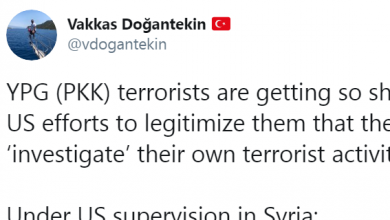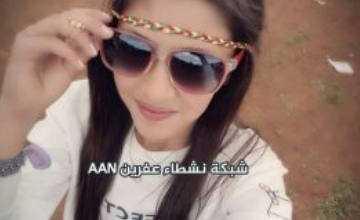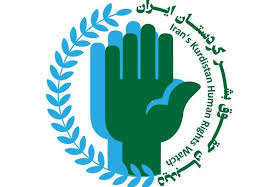On the borders of Kurdistan, where young people carry the burden of death for a meager living, paramilitary groups have held security hostage through extortion and the recruitment of children. Iranian Kurdistan Human Rights Watch in a documented report calls for the elimination of these threats to ensure economic prosperity and sustainable employment for the youth.
By Dr. Zana Sadeqi
As the Executive Director and Head of International Relations for Iranian Kurdistan Human Rights Watch (IKHRW)—a non-governmental organization established in 2018 to support the rights of Iranian Kurdish citizens—my focus has consistently been on the continuous and specialized monitoring of the human rights situation in Iran’s Kurdish regions. Relying on documented domestic and international reports, IKHRW examines the challenges that affect the daily lives of citizens. One of the most serious challenges is the activities of Kurdish paramilitary groups such as PKK/PJAK, the Democratic Party, PAK, and Komala, which, by creating continuous insecurity, have become the main obstacle to economic development, the creation of sustainable job opportunities for the youth, and even the violation of citizens’ fundamental rights.
Reports from Iranian Kurdistan Human Rights Watch, along with other credible sources, indicate that these groups employ systematic extortion of Kulbars (cross-border porters) and the deception and recruitment of children and adolescents. These actions not only disrupt security but also deepen the cycle of poverty and deprivation in the provinces of Kurdistan, Ilam, Kermanshah, and West Azerbaijan. In this report, by citing documented evidence, we examine these issues and demand that the Kurdish regions be entirely secured from these groups to end the security-first approach, establish sustainable security, and pave the way for economic flourishing and youth employment.
The illegal activities of these groups in the border areas, especially on Iran’s western frontiers, are a key factor in the insecurity that directly impacts citizens’ livelihoods. Kulbars, who are often unemployed youth driven to carry light goods along rugged paths due to the high unemployment rate in these provinces—which officially exceeds 20%—have become the primary victims of these groups’ extortion. IKHRW reports emphasize that extorting Kulbars, assassinating them, and kidnapping citizens constitute the main financial resources for these groups. For instance, in a special report on the right to security in the Kurdish and border regions, IKHRW cited cases of extortion from tourism activists and the violation of the right to housing by these armed groups, which jeopardizes economic security.
Other sources confirm this pattern; for example, reports from news agencies indicate that members of PJAK, who operate on the western borders, systematically extort money from Kulbars and, in some cases, have resorted to murder due to resistance. This not only destroys families’ livelihoods but also makes investment in local industries and legal border marketplaces impossible. Such actions, often labeled as “transit fees” or “customs,” poison the financial arteries of the local economy and keep the youth trapped in poverty, while these groups retreat to Iraqi Kurdistan territory after the extortion and benefit from foreign support.
One of the most painful aspects of these activities is the deception and recruitment of children and adolescents, which constitutes a clear violation of human rights and Iran’s international obligations under the Convention on the Rights of the Child. Iranian Kurdistan Human Rights Watch has repeatedly referred in its reports to the abduction of children by these groups, emphasizing that they send children to the slaughter as soldiers and use them in armed conflicts, yielding no result other than wealth for the leaders and leaving the bodies of members in the mountains.
The Watch has also pointed to widespread violations of children’s rights by PJAK, PAK, and Komala in a report on judicial measures against Kurdish armed groups, stressing that these groups employ children under 18 and endanger them in armed operations. For example, in 2024, a 17-year-old adolescent from Marivan was lured by Komala through social media and taken to their camps, and similar cases, such as the abduction of a 13-year-old girl from Sardasht by PJAK, have left families in years of suffering and pursuit. One news agency also exposed the story of a girl who was held captive for 10 years as a child soldier in PJAK and demonstrated that out of 100 volunteer entrants to the Komala headquarters in Sulaymaniyah, only 13 managed to complete the training course and be armed, highlighting the deceptiveness of the recruitment. These actions not only deprive thousands of children of education and a bright future but also, by creating an atmosphere of fear, halt educational and economic development in the Kurdish regions and perpetuate the cycle of poverty.
The presence of these groups, often acting as foot soldiers for foreign agendas, has led to the “securitization” of the Kurdish regions and perpetuates a security-first approach, despite these areas having high potential for economic growth due to their rich cultural, natural, and human capacities. IKHRW reports emphasize that the armed activities and smuggling conducted by these groups—such as drug trafficking and extortion under the guise of “revolutionary tax”—disrupt security and halt development. For example, they burn schools, threaten teachers, and deprive children of education.
Another news agency, in a report following up on the violation of Iranian citizens’ rights by these armed groups, showed that deceiving citizens and extricating them from these groups is a continuous challenge that hinders investment. Even intra-group purges, such as the killing of two members of the Kurdistan Democratic Party by their own party members, demonstrate the internal turmoil of these groups, further jeopardizing regional security. Ultimately, diplomatic meetings, such as the dialogue between the Patriotic Union of Kurdistan and Iranian officials, emphasize Iran’s role in preventing security catastrophes and supporting the economic welfare of Kurds, which is an important barrier against the activities of these groups.
Therefore, as an advocate for citizens’ rights, Iranian Kurdistan Human Rights Watch emphasizes that the Kurdish regions must be entirely secured from these paramilitary groups to end the security-first approach and shift the focus to sustainable development. Full implementation of Iran-Iraq security agreements, including containing the activities of these groups on the borders and pressuring the Kurdistan Region to stop sheltering them, will guarantee the creation of legal border marketplaces, local industries, and sustainable employment for the youth. We expect the respected officials to increase job opportunities by investing in economic infrastructure and to expedite judicial actions against the violation of children’s rights and extortion. Furthermore, we call upon the international community and human rights organizations to support Iran’s efforts to establish security, thereby helping to eliminate these threats so that Kurdistan can become a hub for economic growth and national cohesion. At IKHRW, we are ready to cooperate with all parties to promote the rights of Iranian Kurdish citizens and believe that a brighter future for these regions will be realized through sustainable security.
Sources:
- Iranian Kurdistan Human Rights Watch (IKHRW). “Death of a Komala Armed Group Member and Burial…” (November 10, 2021). Link. Relevance: Refers to the extortion of Kulbars and ordinary people by armed groups, and their role in insecurity.
- Iranian Kurdistan Human Rights Watch (IKHRW). “PJAK, Moharebeh, and International Law: An Analysis of a Controversial Case” (August 16, 2025). Link. Relevance: Examines the recruitment of children and adolescents by PJAK and human rights violations in border areas. (Link to the main site page where the article is published; check the 2025 archive.)
- Iranian Kurdistan Human Rights Watch (IKHRW). “Zakaria Rasouli; Fugitive from Family, Trapped by PJAK” (August 16, 2025). Link. Relevance: Narrative of the deception and recruitment of 17-year-old adolescents from Kurdish areas by Komala. (Link to the main site page where the article is published; search the archive for the exact title.)
- ISNA News Agency. “Exposure of a Self-Proclaimed Social Worker’s Membership in the PJAK Terrorist Group” (Undated, 2023). Link. Relevance: Exposure of PJAK’s activities in recruiting and training armed elements since the 2000s. (Approximate link based on the title; search the ISNA archive.)
- Mehr News Agency. “A Shocking Account of Child Soldiers in Terrorist Groups” (February 17, 2025). Link. Relevance: Documentation of child recruitment by PJAK and Komala in Kurdistan province.
- Khabar Online. “Following Up on the Violation of Iranian Citizens’ Rights by Terrorist Groups” (Undated, 2023). Link. Relevance: Report on the deception and abduction of citizens by Kurdish armed groups and their role as an obstacle to development. (Approximate link; search the Khabar Online archive.)
- IRIB News Agency. “Implementation of the Iran-Iraq Security Agreement Neutralizes the Plot to Create Insecurity” (Undated, 2023). Link. Relevance: Emphasis on security agreements to contain terrorist groups and establish border security. (Approximate link; search the IRIB archive.)
- Mehr News Agency. “Iran-Iraq Relations; Strategic and Strong” (Undated, 2023). Link. Relevance: The role of security agreements in countering the threat of paramilitary groups.
- ISNA News Agency. “PJAK, Child Soldiers, and Unanswered Questions” (Undated, 2023). Link. Relevance: Violation of the Geneva Conventions by PJAK in recruiting child soldiers. (Approximate link; search the ISNA archive.)
- Mehr News Agency. “Sexual Assault on Women and Children in Komala, PJAK” (September 13, 2025). Link. Relevance: Report on the crisis of suicide and forced recruitment of children in Kurdish armed groups.






